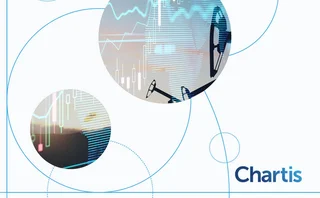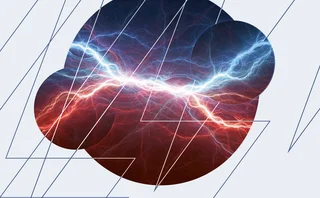
Energy market liquidity faces threat from regulation
Financial reforms such as Mifid II could undermine years of progress by governments, regulators and industry aimed at building liquid and transparent European energy markets

After the US, the European Union has some of the most liquid and transparent energy markets found anywhere in the world. That is a valuable thing. It makes for greater competition and efficiency, allows producers and consumers to benefit from lower transaction costs and lets them more easily hedge their risks.
But despite the efforts of EU institutions to bring the continent's energy markets closer together through initiatives such as market coupling, they are not monoliths. In power and natural gas, the ‘churn rate' – or the level of trading compared with actual physical deliveries – is high in a few countries, before dropping off dramatically elsewhere.
The goal of full market liberalisation has certainly not been achieved by some western European countries. And in some, progress is being reversed by top-down policies aimed at greening the generation mix and ensuring national security of supply. But the situation is quite different in EU countries of the former eastern bloc.
Bulgaria is one example. I travelled to Sofia for Energy Risk Balkans in April, where speakers criticised the way the government has sought to open up its power market under the EU's Third Energy Package. Participants faced a lack of information on trading activity, they complained, as well as onerous taxes on exports and a planned exchange run by the state-owned company that also happens to be the country's largest generator.
Despite the very real challenge of bringing the country's government around to the idea of true competition, market participants in Sofia were upbeat. The goal of a liquid and transparent market there is perhaps closer than it has ever been, and they needed no reminding of the benefits this could bring.
Liquid power and gas markets are not created by accident, but by years of hard work between governments, regulators and industry
How different this is to the attitude of financial regulators, which have ploughed ahead with numerous reforms that impinge on the liquidity of energy markets. Under Mifid II, a package of financial law whose main provisions go into effect in 2017, many energy companies are likely to get entangled in rules primarily designed for financial services firms. Industry groups argue this will irreparably harm the existing liquidity in EU energy markets, which has taken some 15 years to build. Let's hope that Europe's emerging energy markets, such as that of Bulgaria, are not strangled at birth.
Politicians and financial regulators must recognise the critical difference between energy and financial markets. Liquid power and gas markets are not created by accident, but by years of hard work between governments, regulators and industry. Energy is the lifeblood of the modern economy. If the EU is serious about having markets to allocate energy resources, they must be allowed to function properly.
Only users who have a paid subscription or are part of a corporate subscription are able to print or copy content.
To access these options, along with all other subscription benefits, please contact info@risk.net or view our subscription options here: http://subscriptions.risk.net/subscribe
You are currently unable to print this content. Please contact info@risk.net to find out more.
You are currently unable to copy this content. Please contact info@risk.net to find out more.
Copyright Infopro Digital Limited. All rights reserved.
As outlined in our terms and conditions, https://www.infopro-digital.com/terms-and-conditions/subscriptions/ (point 2.4), printing is limited to a single copy.
If you would like to purchase additional rights please email info@risk.net
Copyright Infopro Digital Limited. All rights reserved.
You may share this content using our article tools. As outlined in our terms and conditions, https://www.infopro-digital.com/terms-and-conditions/subscriptions/ (clause 2.4), an Authorised User may only make one copy of the materials for their own personal use. You must also comply with the restrictions in clause 2.5.
If you would like to purchase additional rights please email info@risk.net
More on Energy
ETRM systems 2024: market update and vendor landscape
This Chartis report evaluates energy trading and risk management systems that provide front-to-back, asset class-specific and geography-specific coverage, and considers the full energy trade lifecycle
CTRM systems 2024: market update and vendor landscape
A Chartis report on commodity trading and risk management systems that considers its different applications and addresses the market and vendor dynamics to determine the long-term and structural impacts of the overarching market evolution on the…
Energy Risk Commodity Rankings 2024: markets buffeted by geopolitics and economic woes
Winners of the 2024 Commodity Rankings steeled clients to navigate competing forces
Chartis Energy50
The latest iteration of Chartis’ Energy50 ranking
Energy trade surveillance solutions 2023: market and vendor landscape
The market for energy trading surveillance solutions, though small, is expanding as specialist vendors emerge, catering to diverse geographies and market specifics. These vendors, which originate from various sectors, contribute further to the market’s…
Achieving net zero with carbon offsets: best practices and what to avoid
A survey by Risk.net and ION Commodities found that firms are wary of using carbon offsets in their net-zero strategies. While this is understandable, given the reputational risk of many offset projects, it is likely to be extremely difficult and more…
Chartis Energy50 2023
The latest iteration of Chartis' Energy50 2023 ranking and report considers the key issues in today’s energy space, and assesses the vendors operating within it
ION Commodities: spotlight on risk management trends
Energy Risk Software Rankings and awards winner’s interview: ION Commodities







